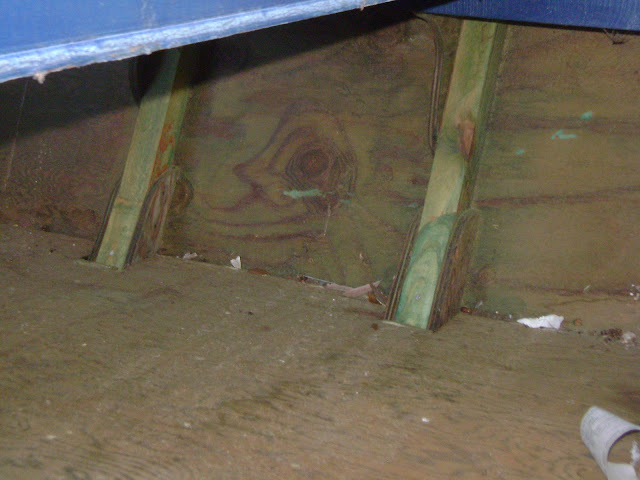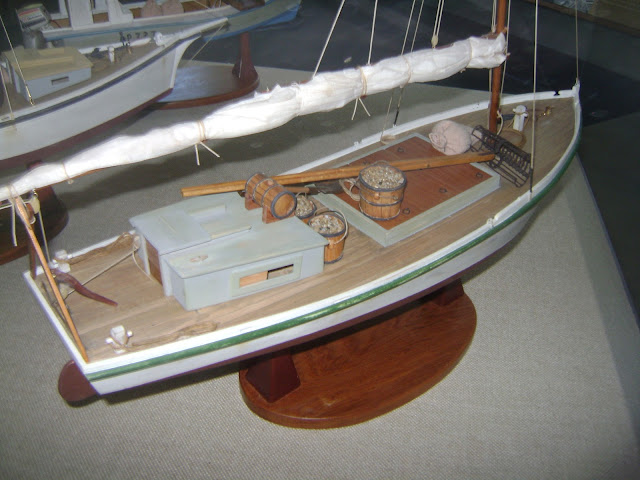This is for the oystering fishery. Made from mostly pressure treated plywood and lumber from the local hardware/lumber store.
They use things like parts of auto engines for anchors.
Many times when they reach the end of their working life they are allowed to rot back into the ground. That's true recycling.
As I live not far from here, I would like to share some photos I took at a new museum in Eastpoint Florida, on the other side of the bay from Apalach.
This is one of the last places in Florida where the old Florida still exist. See it before it's gone. Buy Oysters.
On with the show.
The following boat was built for the museum, but identical to actual working boats.
 |
| From Apalachicola Oystering Boats |
 |
| From Apalachicola Oystering Boats |
 |
| From Apalachicola Oystering Boats |
 |
| From Apalachicola Oystering Boats |
Inside shots.
 |
| From Apalachicola Oystering Boats |
 |
| From Apalachicola Oystering Boats |
 |
| From Apalachicola Oystering Boats |
In The museum. Some models.
 |
| From Apalachicola Oystering Boats |
 |
| From Apalachicola Oystering Boats |
The older sailing version of the oystering boats no longer used.
A model .
 |
| From Apalachicola Oystering Boats |
 |
| From Apalachicola Oystering Boats |
 |
| From Apalachicola Oystering Boats |
 |
| From Apalachicola Oystering Boats |
Sorry for the glare, but they where in a glass case.
The Museum is the: Apalachicola National Estuarine Research Reserve
http://www.dep.state.fl.us/coastal/sites/apalachicola/
http://nerrs.noaa.gov/Reserve.aspx?ResID=APA
Working sail is something I think our governments should foster. It would be harder for the fishermen, but restrictions and limits could be lifted, thereby promoting the fishery.
If this where done across the board with all fisheries,
or at least have working sail only zones, this would help the fish population and the fishermen who would fish under sail.
This is actually used in Great Britain in sail only fisheries that are hundreds of years old, and their fishermen earn a living from the sea still today.
http://www.falmouthoysterfestival.co.uk/fishing.html


No comments:
Post a Comment